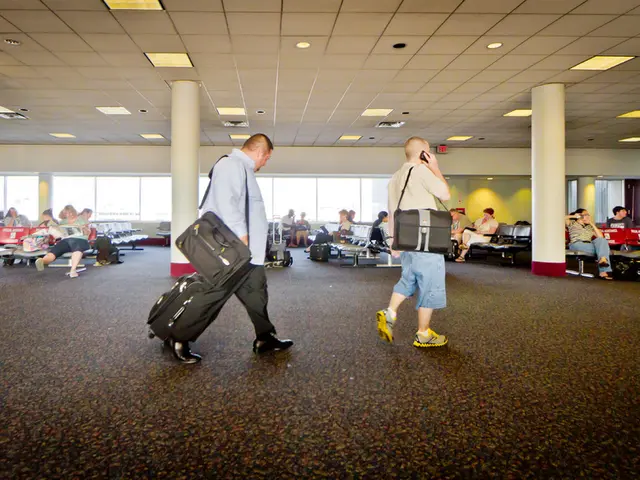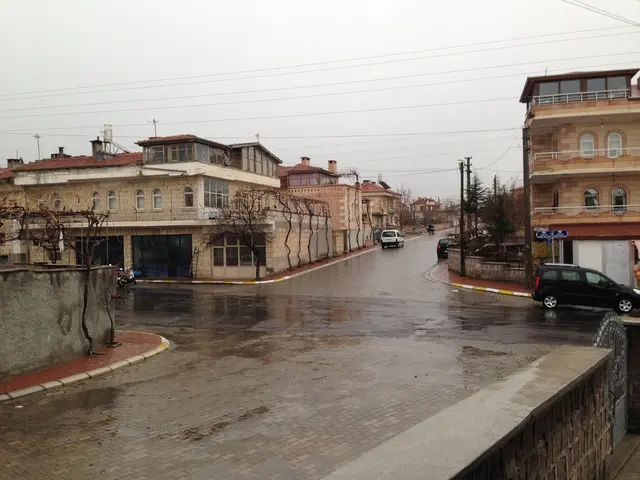Shortened workweek poses no concern for the Central Bank's perspective
Russian Automotive Industry Adopts Four-Day Work Week Amid Economic Challenges
The Russian automotive industry has temporarily switched to a four-day work week, starting around 2024, due to severe difficulties caused by Western sanctions and broader economic challenges following the 2022 invasion of Ukraine. This move significantly hampered production volumes and affected automotive sales negatively during the period 2022-2025.
Key contextual points include:
- Sanctions and supply chain disruptions: Western sanctions imposed since 2022 severely impaired Russia's domestic automobile manufacturing capacity. This resulted in shortages of parts and components, forcing factories to cut back production and adopt shorter work weeks.
- Production and delivery shortfalls: Russian industries, including automotive manufacturing, faced significant output reductions. The auto industry explicitly adopted a 4-day work week, contributing to a decline in new car manufacturing and deliveries.
- Shift in consumer behavior: Due to the drop in new vehicle supply and rising difficulties in domestic production, Russian consumers increasingly turned to used cars, including imports of used Japanese vehicles, as a substitute.
- Broader economic trends: The automotive sector's contraction was part of a general downturn across Russian heavy industry and manufacturing, with profits falling in mining, metallurgy, and aviation as well, reflecting an economy "running on fumes" by 2025.
- No indication of recovery through 2025: By mid-2025, the economic situation still showed no meaningful recovery signals for the automotive industry. The continuation of reduced work weeks and production limitations implied ongoing suppressed sales and economic output in this sector.
Among the companies that have implemented or plan to implement this measure are LiAZ, GAZ, PАZ, Rostselmash, Yaraslavsky "Avtodiesel" and YAZDA plants, KAMAZ, and the Chelyabinsk Electrometallurgical Combine. The Gorkovsky Automobile Plant will operate on a four-day work week schedule only in August. The "Tsement" holding, which produces cement, will switch to a four-day work week starting October 1.
The Bank of Russia does not see systemic risks associated with some enterprises temporarily switching to a four-day work week. However, imported brands are pursuing a policy of price dumping, according to "AvtoVAZ". Sales of new light vehicles and LCVs fell by 25.7% year-on-year to 575,500 vehicles, according to first-half data from the Ministry of Industry and Trade. The stock of imported brands amounts to around 400,000 unsold cars, according to "AvtoVAZ".
Russian dealers expect a decrease in car sales in 2025, ranging from 12 to 25%. The optimistic scenario for car sales in 2022, according to Renat Tyuktaev, is an interval between 1.2 and 1.3 million units, provided the key rate does not fall. The final decision for "AvtoVAZ" will depend on market trends and economic factors.
[1] Source: https://www.reuters.com/world/europe/russias-car-industry-faces-long-road-recovery-2022-07-26/ [2] Source: https://www.bloomberg.com/news/articles/2022-07-27/russia-s-car-market-shrinks-as-sanctions-curb-production-demand
- Despite the challenges posed by Sanctions and supply chain disruptions, some Russian automobile manufacturing companies, such as LiAZ, GAZ, Rostselmash, Yaraslavsky "Avtodiesel", YAZDA plants, KAMAZ, and the Chelyabinsk Electrometallurgical Combine, have adopted or plan to implement the four-day work week, impacting their finance and overall business operations.
- As the Russian automotive industry grapples with reduced production and delivery shortfalls against the backdrop of Western sanctions, increased imports of used Japanese vehicles emerge as a potential solution for consumers; however, this shift in business may exacerbate financial difficulties for domestic automobile manufacturers.




